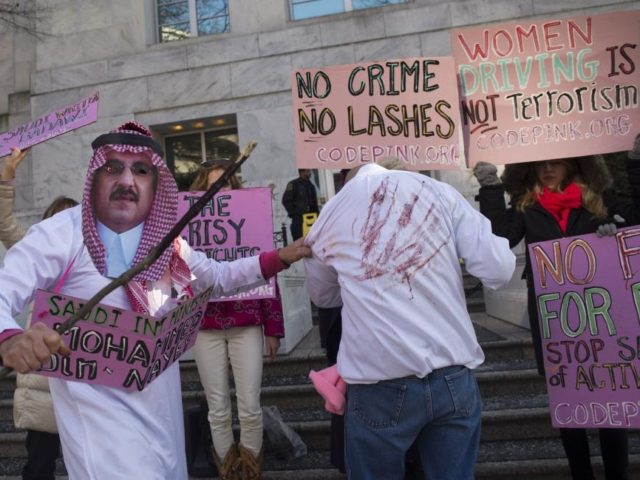(UPI) — The General Assembly of Saudi Arabia’s Supreme Court has decided to end flogging as punishment in disciplinary cases.
The Supreme Court has directed the lower courts to limit the punishments instead to imprisonment or fines, according to a document cited by Al Arabiya English news website.
Beating of the human body with whips or sticks has been used along with prison terms in several disciplinary cases in the country, including offenses such as theft, forgery, defamation, slander, public intoxication and harassment.
The directive says that the change is a part of the kingdom’s human rights reforms.
Flogging in Saudi Arabia came under in 2012 when blogger Raif Badawi was sentenced to 1,000 lashes and 10 years in prison after being arrested in 2012 for cybercrime and insulting Islam through his website The Liberal Saudi Network. Badawi received the first round of 50 lashes in January and was scheduled to receive the remaining 950 lashes in increments of 50.
The second round of lashes was postponed “for medical reasons,” according to Amnesty International.
The country “faced unprecedented international criticism,” last year for its record on human rights, according to Human Rights Watch. Among the stains on its record, was lack of accountability for the slaying of Saudi journalist and Washington Post contributor Jamal Khashoggi in October 2018.
Saudi Arabia also carried out a record 184 executions in 2019, including 84 for non-violent drug crimes, while capital punishment generally declined in the rest of the world.
The country has continued its military campaign against Houthi rebels in Yemen through 2019, which has resulted in about 90 unlawful airstrikes and killing and injuring of thousands of civilians since it began.

COMMENTS
Please let us know if you're having issues with commenting.